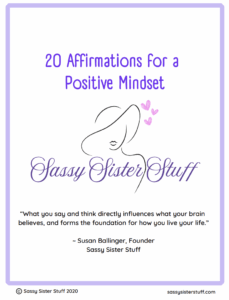12 Everyday Behaviors That Give Off Stressed‑Out Vibes
Small, everyday habits can quietly make you appear more stressed than you actually feel. These subtle actions influence how others perceive you, as well as your own mood and energy.
By noticing these habits, you can adjust your daily routines and project a calmer, more relaxed version of yourself. Becoming aware of what might be signaling stress allows you to take simple steps to look and feel more at ease.
Constantly frowning or furrowing your brow

Regularly frowning or furrowing your brow sends a signal that you might be stressed or worried, even if you don’t feel that way. This habit tightens the muscles between your eyebrows and can create visible lines over time.
You might not notice yourself doing it, but others can pick up on this expression and assume you’re upset or anxious. Try to relax your forehead when you feel tension building.
Massaging gently between your eyebrows can help ease that tight feeling. Awareness is the first step to softening your expression and looking more relaxed.
Tapping your foot or fingers nervously
Tapping your foot or fingers repeatedly can signal that your mind is restless. This habit often happens without you realizing it, especially when you feel anxious or stressed.
Tapping is a way your body tries to release nervous energy or cope with discomfort. While it’s usually harmless, others might notice it and assume you’re uneasy or distracted.
If you catch yourself tapping often, it might help to pause and take a deep breath. Finding small ways to calm your nervous system can reduce the urge to tap.
Avoiding eye contact during conversations
Avoiding eye contact can quietly signal that you’re stressed or anxious. This habit often happens because looking someone in the eye feels intense or overwhelming.
When you don’t meet someone’s gaze, it might make them think you’re uneasy or distracted. Eye contact shows you’re present, so avoiding it can create a sense of distance.
Sometimes, avoiding eye contact is a way to cope with social pressure or nervousness. Small steps like brief glances can help you feel more comfortable and less stressed during conversations.
Speaking too quickly or rushing your words
Speaking too quickly can make you seem anxious or stressed, even if you don’t feel that way. Your words may come out jumbled, making it harder for others to follow.
Often, rushing happens because your mind is moving faster than your mouth, or because you’re nervous. Taking a few deep breaths can slow your pace and help you sound more calm.
Slowing down your speech gives you time to think and helps others better understand your message. It also lets you come across as more confident and in control.
Pacing back and forth while thinking
If you find yourself pacing back and forth when deep in thought, you’re not alone. This habit often happens without you realizing it, especially when your mind is busy or stressed.
Pacing can be a way your body’s trying to manage anxiety or intense focus. Moving rhythmically helps some people feel more grounded and calm.
Just be mindful if it starts to interfere with your daily routine or makes you feel more anxious.
Overusing filler words like ‘um’ and ‘like’
Using filler words like “um” and “like” too much can make you seem unsure or distracted. These words often pop up when you’re nervous or searching for what to say next.
Listeners might pick up on this and think you’re less confident than you really are. Your message can get a bit lost when fillers take over.
By becoming more aware of these habits, you can practice pausing instead of filling silence. This gives you time to gather your thoughts and appear more composed.
Cutting back on filler words helps you sound clearer and more relaxed.
Biting your nails or picking at your skin

Biting your nails or picking at your skin can make you appear more stressed than you feel. These habits are common responses to anxiety or nervousness, and people may notice them even when you try to hide.
While it might seem harmless, nail biting and skin picking can cause small injuries and introduce germs. Over time, these behaviors may also affect your mental well-being.
Trying simple tricks, like gently touching your fingertips or keeping your hands busy, can help reduce these habits. If it feels hard to stop, talking to a professional might provide useful support.
Checking your phone repeatedly
Constantly checking your phone can make you appear stressed. It’s a habit many people do without thinking, often driven by a need for quick information or distraction.
This behavior can actually increase your stress levels. Each time you check, your brain gets a small dopamine hit, which encourages you to keep repeating the action.
Try setting specific times to check your phone instead of doing it throughout the day.
Forgetting to take deep breaths regularly
Forgetting to take deep breaths can make your body feel tense and restless. Shallow breathing often happens when you’re stressed or focused, and it can quietly make you look distracted or anxious.
Taking slow, deep breaths helps activate your body’s relaxation response. This simple habit can calm your mind and reduce visible signs of stress.
If you catch yourself holding your breath or breathing shallowly, try pausing to breathe deeply a few times. Practicing this regularly can improve how you feel and how others see your energy.
Apologizing excessively
Saying “sorry” too often can signal underlying stress. Excessive apologizing may come across as a lack of confidence or self-worth.
You might be apologizing for things beyond your control or for simply being yourself. This habit can unintentionally make others see you as overwhelmed or anxious.
Try to save your apologies for moments that truly need them. Doing this helps you set healthier boundaries and shows that you respect both yourself and others.
Clenching your jaw or grinding teeth

Clenching your jaw or grinding your teeth can make you look tense. These habits often show up during stressful moments, tightening your facial muscles.
This muscle tension can give your face a strained or unhappy expression. Over time, it may also cause headaches or jaw discomfort.
Try to catch yourself during the day and relax your jaw. Using a dental guard at night can protect your teeth from grinding you might not notice.
Simple breathing exercises can help ease the tension too.
Withdrawing from social interactions can make you seem overwhelmed or stressed without saying a word. People may notice if you shy away from conversations or activities more than usual.
Pulling back from friends and family might feel like a way to protect yourself, but it often signals to others that something is off.
Taking steps to reconnect, like scheduling casual meetups, can slowly rebuild your social confidence. It’s a gentle habit that eases tension and shows you’re managing your stress better.








